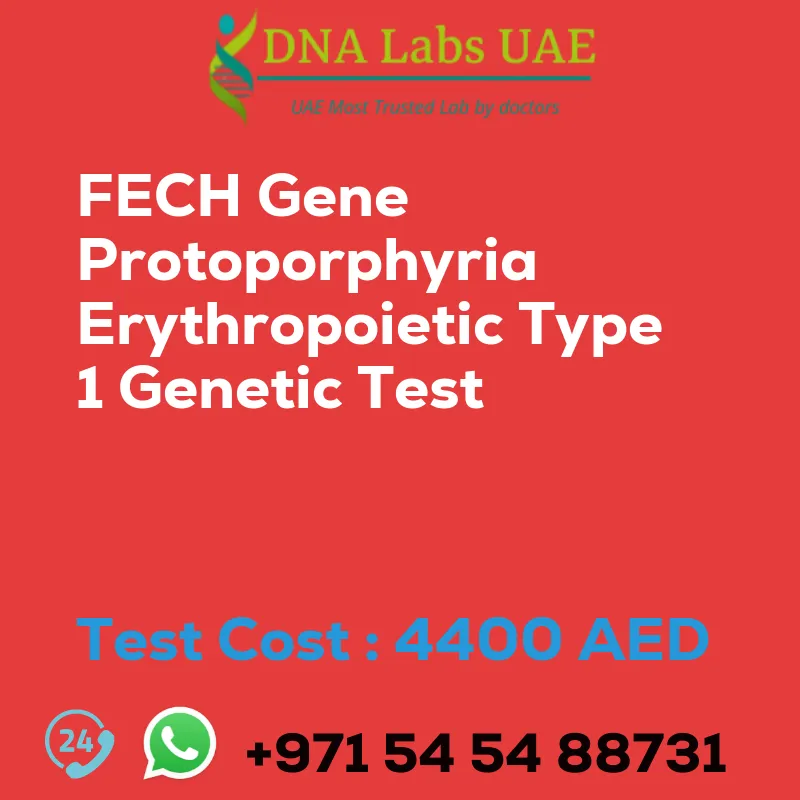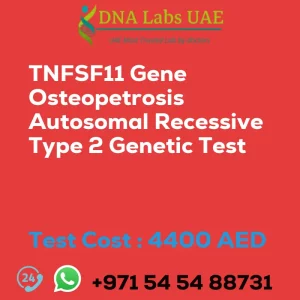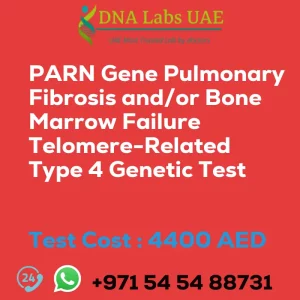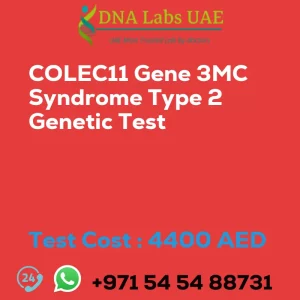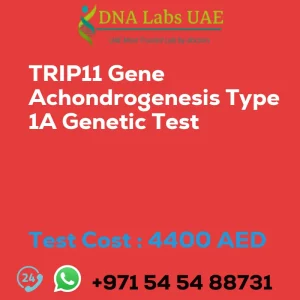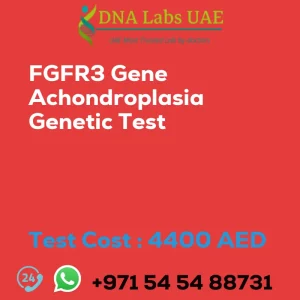FECH Gene Protoporphyria erythropoietic type 1 Genetic Test
At DNA Labs UAE, we offer the FECH Gene Protoporphyria erythropoietic type 1 Genetic Test at a cost of 4400.0 AED.
Test Details
The FECH gene protoporphyria, erythropoietic type 1 NGS genetic test is a type of genetic test that utilizes next-generation sequencing (NGS) technology to analyze the FECH gene for mutations associated with erythropoietic protoporphyria (EPP) type 1.
Erythropoietic protoporphyria is a rare genetic disorder characterized by the accumulation of protoporphyrin IX in the body, leading to photosensitivity and skin symptoms upon exposure to sunlight. EPP type 1 is caused by mutations in the FECH gene, which provides instructions for producing the enzyme ferrochelatase involved in the production of heme.
The NGS genetic test for FECH gene protoporphyria aims to identify any mutations or genetic variations in the FECH gene that may contribute to the development of EPP type 1. This test involves sequencing the entire coding region of the FECH gene to detect any changes in the DNA sequence.
By identifying specific mutations or genetic variations in the FECH gene, this NGS genetic test can help in the diagnosis of EPP type 1 and provide information for genetic counseling and management of the condition. It can also be used for carrier testing and prenatal testing for individuals with a family history of EPP type 1.
It is important to note that the interpretation of NGS genetic test results should be done by a qualified healthcare professional who specializes in genetics, as the presence of a mutation does not necessarily guarantee the development of the condition. Additionally, genetic testing may have limitations, and negative results do not completely rule out the possibility of having or developing the condition.
Test Components
- Price: 4400.0 AED
- Sample Condition: Blood or Extracted DNA or One drop Blood on FTA Card
- Report Delivery: 3 to 4 Weeks
- Method: NGS Technology
- Test Type: Osteology Dermatology Immunology Disorders
- Doctor: Dermatologist
- Test Department: Genetics
Pre Test Information
Before undergoing the FECH Gene Protoporphyria erythropoietic type 1 NGS Genetic DNA Test, it is important to provide the clinical history of the patient. Additionally, a Genetic Counselling session will be conducted to draw a pedigree chart of family members affected with FECH Gene Protoporphyria, erythropoietic type 1 NGS Genetic DNA Test gene FECH.
| Test Name | FECH Gene Protoporphyria erythropoietic type 1 Genetic Test |
|---|---|
| Components | |
| Price | 4400.0 AED |
| Sample Condition | Blood or Extracted DNA or One drop Blood on FTA Card |
| Report Delivery | 3 to 4 Weeks |
| Method | NGS Technology |
| Test type | Osteology Dermatology Immunology Disorders |
| Doctor | Dermatologist |
| Test Department: | Genetics |
| Pre Test Information | Clinical History of Patient who is going for FECH Gene Protoporphyria, erythropoietic type 1 NGS Genetic DNA Test. A Genetic Counselling session to draw a pedigree chart of family members affected with FECH Gene Protoporphyria, erythropoietic type 1 NGS Genetic DNA Test gene FECH |
| Test Details |
FECH gene protoporphyria, erythropoietic type 1 NGS genetic test is a type of genetic test that utilizes next-generation sequencing (NGS) technology to analyze the FECH gene for mutations associated with erythropoietic protoporphyria (EPP) type 1. Erythropoietic protoporphyria is a rare genetic disorder characterized by the accumulation of protoporphyrin IX in the body, leading to photosensitivity and skin symptoms upon exposure to sunlight. EPP type 1 is caused by mutations in the FECH gene, which provides instructions for producing the enzyme ferrochelatase involved in the production of heme. The NGS genetic test for FECH gene protoporphyria aims to identify any mutations or genetic variations in the FECH gene that may contribute to the development of EPP type 1. This test involves sequencing the entire coding region of the FECH gene to detect any changes in the DNA sequence. By identifying specific mutations or genetic variations in the FECH gene, this NGS genetic test can help in the diagnosis of EPP type 1 and provide information for genetic counseling and management of the condition. It can also be used for carrier testing and prenatal testing for individuals with a family history of EPP type 1. It is important to note that the interpretation of NGS genetic test results should be done by a qualified healthcare professional who specializes in genetics, as the presence of a mutation does not necessarily guarantee the development of the condition. Additionally, genetic testing may have limitations, and negative results do not completely rule out the possibility of having or developing the condition. |

